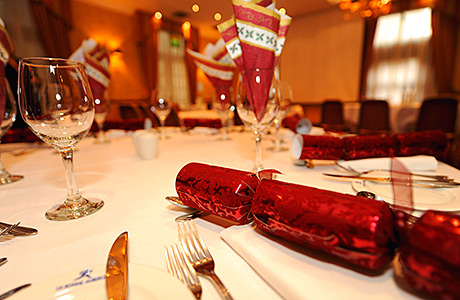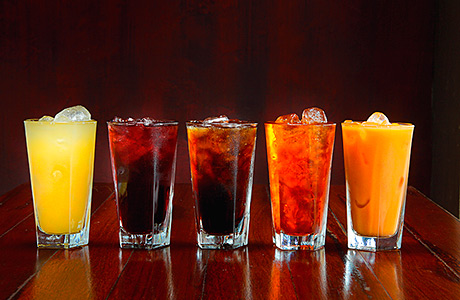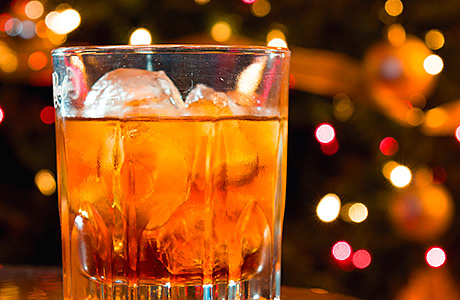Foreign products have the flavour and provenance to appeal, drinks firms say

CUSTOMERS in today’s pubs are often well travelled, interested in provenance and prepared to try new things – all of which world beer can offer.
That was the message from brewers and distributors contacted by SLTN last week, who advised publicans keen to offer beers that will leave a lasting impression to look further afield when choosing what to stock in their fridges.
James Wright of Halewood International, the UK distributor for Chinese beer brand Tsingtao, said there is “a trend within the on-trade of consumers moving towards world beers, as people are looking for a quality product with a quality serve to match”.
Consumers travelling to faraway locations are developing a taste for exotic products.
This can be attributed in part to increased overseas travel combined with a growing interest in provenance, said Wright. “As consumers are travelling to faraway destinations, we’re noticing that they’re adopting the taste for exotic products on their travels,” he said.
“Consumers want high quality, genuine ‘imported’ bottled beers, but are increasingly placing importance on traceability and natural ingredients.”
David O’Neill of Shepherd Neame, UK distributor for world beer brands such as Samuel Adams Boston Lager, Asahi and Oranjeboom, said consumers are increasingly seeking out brands with an interesting heritage.
“Knowledge and a story behind a brand always helps the consumer to understand what they are buying into,” said O’Neill.
The importance of provenance was also highlighted by Jonathan Barnes, national account manager for Czech beer brand Budvar.
“Beer is an agricultural product and like all agricultural products it is coming more and more under the consumer’s microscope as health and environment concerns continue to grow in importance in consumer thinking,” said Barnes.
He reckons consumers react to world beers in two ways.
“One is knowledge-based and the other is the kid-in-the-sweetshop, up to try everything,” said Barnes.
“Regardless of which of these two types we are looking at, the drinker in his choice of beer is certainly using the chosen beer to make a lifestyle statement.
“The knowledge-based drinker is certainly concerned with genuine provenance but it would be naïve to suggest that they make up the majority and the real interest in the category springs from it offering a cornucopia of new taste experiences.”
Offering a range of new drinks may sound challenging for publicans with limited fridge space, but Graham Archibald of Morgenrot said there is no pre-defined formula for compiling a successful world beer range.
“It depends on the venue, fridge/bar space, food offering and target clientele,” he said.
“However, stocking the right world beers and serving them in the correct way will undoubtedly attract footfall and tempt consumers to part with more cash.”
Morgenrot is the UK distributor for a number of world beer brands, including Argentinian beer Quilmes, Pelforth from France and Alhambra from Spain.
Archibald said a strong world beer range relies more on quality than quantity.
“Operators shouldn’t be looking to stock a beer from every obscure nation but a selection of a few interesting styles, ABVs, taste profiles and flavours which match the food offering can be beneficial,” he said.
“Saying that, lager still has to be given respect and bar space as it can be a key margin driver if you get the right brand.
“Consumers are continuing to be more experimental [and] are searching out the new so it’s vital operators offer lagers with the wow factor.”
As the intermediary between producer and customer, it falls to bar staff to convey the story of a brand.
Lager still has to be given respect and bar space as it can be a key margin driver.
Allan Cunningham of Delivered Drinks, UK distributor for Brewers & Union, reminded operators not to neglect staff training on world beers.
“Remember to educate your staff about the beers in the fridge and importantly let them taste the beers you have on offer,” said Cunningham.
“Their recommendation to customers is vital to help you build an exciting world beer portfolio.”
Hugo Mills of Molson Coors Scotland echoed Cunningham’s sentiments, stating that staff training is “integral” to world beer sales.
“Staff should be able to communicate the taste and experiences offered by world beers and also suggest food pairing options,” said Mills.
Sam Rhodes, director of customer marketing at Miller Brands, the firm behind Peroni Nastro Azzurro and Pilsner Urquell, made the case for staff recommendations when it comes to boosting sales of world beer.
“Less than half of consumers have pre-determined brand choice, and can therefore be tempted to trade up to world beers, if interesting choices are available,” said Rhodes.























